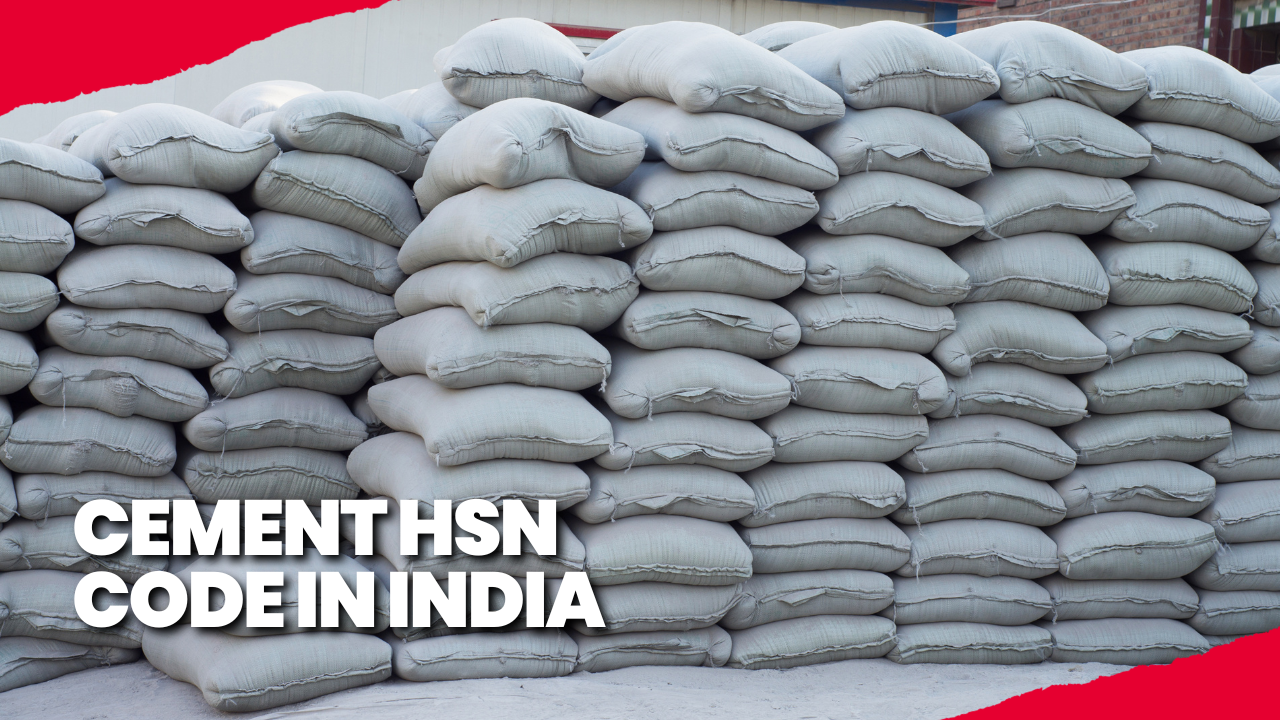
The Harmonized System of Nomenclature (HSN) is a widely acknowledged method of categorizing items for international trade. Its purpose is to standardize product classification and promote global trade negotiations and agreements. Here you can know about cement hsn code in india.
HSN for cement is a specific classification used to identify and categorize various types of cement for import and export.
What is the HSN for cement?
HSN for cement is a unique classification system that use to identify and categorize various types of cement for import and export. It is a six-digit code that classifies cement goods according to composition, quality, and intended usage. The cement HSN code is 2523.
Why is HSN for Cement Important?
HSN for cement is crucial for several reasons. First, it facilitates international trade by establishing a consistent classification system. This makes it easier for importers and exporters to identify and classify cement products appropriately, resulting in fewer delays and lower prices.
Second, HSN for cement is crucial for regulatory reasons. Many nations have special restrictions for the import and export of cement goods, which frequently necessitate the use of HSN codes. Importers and exporters can assure regulatory compliance by utilizing the correct HSN code for a specific type of cement.
Finally, the HSN for cement is useful for statistical purposes. Governments and international organizations use HSN codes to trace the movement of commodities between nations and collect information on trade patterns and trends. Using HSN codes, they may compile accurate and trustworthy information on cement import and export.
How Does HSN For Cement Work?
HSN for cement uses a six-digit code to identify cement goods based on composition, quality and intended use. The first two numbers of the code (25) indicate that this is a mineral product. The third digit (2) signifies that the product is a sort of cement. The remaining three numbers are used to categorize the product according to its specific qualities and intended purpose.
For example, Portland’s cement HSN code is 2523 29 10. The first two numerals (25) indicate that this is a mineral product. The third digit (2) signifies that the product is a sort of cement. The remaining three numbers (329) are used to categorize the product according to its specific qualities and intended application. In this situation, code 329 indicates that the cement is Portland.
Different Cement Types and Their HSN Codes
Cement is classified into many different varieties, each with its own cement HSN code. Here are a few examples:
- Portland cement 2523 29 10
- White Cement: 2523 21 00
- Colored cement: 2523 10 00
- Hydraulic cement, 2523 90 20
- Aluminous cement: 2523 90 30
- Slag cement 2523 90 40
- Pozzolanic cement 2523 90 50
- Super sulfate cement 2523 90 60
As you can see, each type of cement assign a unique identifier that represents its composition, quality, and intended application.
Also Read This:
HSN Codes For Cement Products And Accessories
In addition to codes for different types of cement, HSN codes are also available for numerous cement items and accessories. Here are a few examples:
- Cement Clinker: 2523 10.00
- Cement Bricks: 6810 11 90
- Cement tiles: 6907 22.00.
- Cement pipes: 6810 11 90.
- Cement Bags: 3923 21.00
- Cement mixers: 8474 31.00
As with cement types, each of these items and accessories is assigned a unique code that represents their composition, quality, and intended application.
Also Read This:
How do you find the HSN code for your cement products?
If you are importing or exporting cement items, you must first obtain the relevant cement HSN code for your products. To do so, visit the official HSN list for your nation or region. This list includes the codes for various types of cement and cement products, as well as any relevant rules and regulations.
It is important to remember that the HSN system is susceptible to change. Thus, it is advisable to stay current on any modifications or revisions to the system. This ensures that you use the most correct and accurate codes for your cement products.
Wrapping It Up
Understanding cement HSN code is critical for everyone involved in the import or export of cement goods. Using the correct codes allows you to assure regulatory compliance, promote international trade, and generate reliable statistics on the flow of goods.
With the data and tools available, obtaining the correct HSN code for your cement products is a simple process that may help you simplify your business operations and ensure your products arrive at their intended destination.
FAQs
No, HSN codes for cement might differ in each country based on local legislation and trade agreements.
The advantages of adopting HSN for cement include increased trade, regulatory compliance, and reliable statistics on the movement of commodities.
No, each cement product has a distinct code that identifies its composition, quality, and intended purpose.
Also Checkout Our YouTube Chanel: @limeinstituteofexportimport






